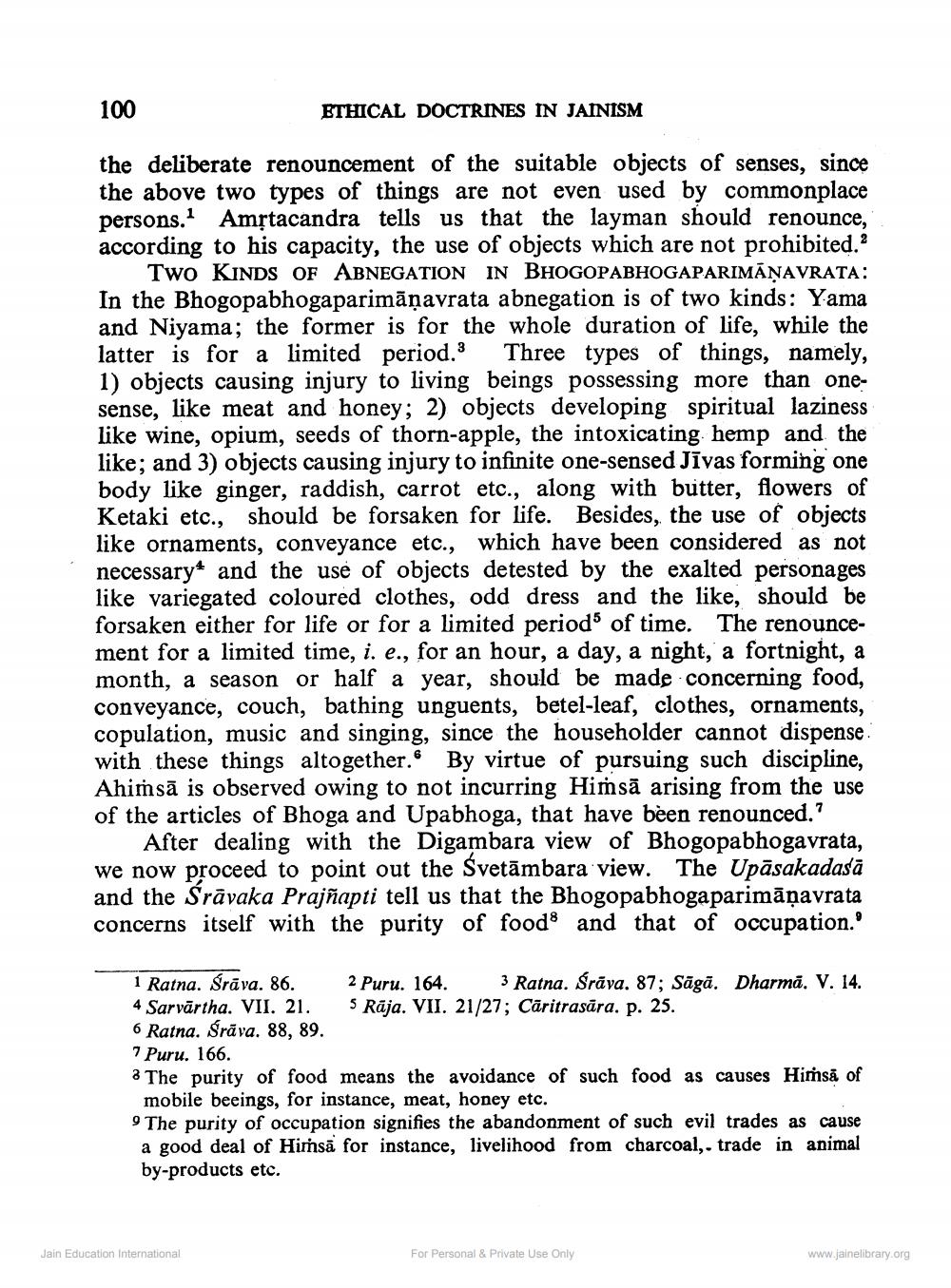________________
100
ETHICAL DOCTRINES IN JAINISM
the deliberate renouncement of the suitable objects of senses, since the above two types of things are not even used by commonplace persons. Amộtacandra tells us that the layman should renounce, according to his capacity, the use of objects which are not prohibited.?
Two KINDS OF ABNEGATION IN BHOGOPABHOGAPARIMĀŅAVRATA: In the Bhogopabhogaparimāņavrata abnegation is of two kinds: Yama and Niyama; the former is for the whole duration of life, while the latter is for a limited period. Three types of things, namely, 1) objects causing injury to living beings possessing more than onesense, like meat and honey; 2) objects developing spiritual laziness like wine, opium, seeds of thorn-apple, the intoxicating hemp and the like; and 3) objects causing injury to infinite one-sensed Jīvas forming one body like ginger, raddish, carrot etc., along with butter, flowers of Ketaki etc., should be forsaken for life. Besides, the use of objects like ornaments, conveyance etc., which have been considered as not necessary* and the use of objects detested by the exalted personag like variegated coloured clothes, odd dress and the like, should be forsaken either for life or for a limited periods of time. The renouncement for a limited time, i. e., for an hour, a day, a night, a fortnight, a month, a season or half a year, should be made concerning food, conveyance, couch, bathing unguents, betel-leaf, clothes, ornaments, copulation, music and singing, since the householder cannot dispense with these things altogether. By virtue of pursuing such discipline, Ahimsā is observed owing to not incurring Himsā arising from the use of the articles of Bhoga and Upabhoga, that have been renounced.?
After dealing with the Digambara view of Bhogopabhogavrata, we now proceed to point out the Svetāmbara view. The Upāsakadašā and the Srāvaka Prajñapti tell us that the Bhogopabhogaparimāņavrata concerns itself with the purity of food and that of occupation."
1 Ratna. Śrāva. 86. 2 Puru. 164. 3 Ratna. Śrāva. 87; Sāgā. Dharmā. V. 14. 4 Sarvārtha. VII. 21. 5 Rāja. VII. 21/27; Căritrasāra. p. 25. 6 Ratna. Srāva. 88, 89. 7 Puru. 166. 3 The purity of food means the avoidance of such food as causes Himsă of mobile beeings, for instance, meat, honey etc. 9 The purity of occupation signifies the abandonment of such evil trades as cause a good deal of Himsă for instance, livelihood from charcoal,- trade in animal by-products etc.
Jain Education International
For Personal & Private Use Only
www.jainelibrary.org




